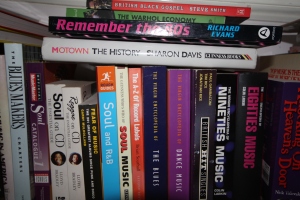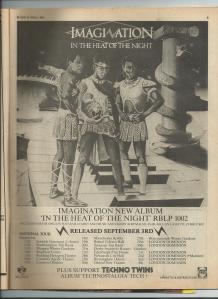It’s that moment when you have one ear on the radio and the other – well, it shouldn’t be on anything at all. You should be writing. IN SILENCE. Often, if asked to remember a song that reminds us of a specific moment or puts us in a certain mood, we can raid our memories and come up with something.
But what about those ones that take us completely by surprise? You hear the first few notes and you are thrown back to your childhood or a forgotten moment? You never knew that you remembered it? I use music a lot in my YA books – Blondie rules the soundtrack in Indigo Donut.
What are random trigger songs? These are mine.
Firstly, this. My Aunty Flo who lived above my foster mum took me to see this at the cinema. It must have been a re-show because I was only one when the film came out. I LOVED this scene. My primary school laid on a production of ‘Oliver’ – child abuse, prostitution and domestic violence, what’s not to like? My best friend, Lucy, was Nancy. Me? I was the flower seller, of course.
This one – I have no idea why. I think it’s because my daughter was little and we put together a little mixtape and this was on there. Luckily, I have no cool to lose by singing along. (Just any friend who may be in close vicinity to witness it.) What became of 3 of a Kind?
When I was little, we spent summer holidays in Ceriana, near San Remo with my stepdad’s family. The first time I went, two English-speaking songs were big. One was Don McLean’s Vincent aka Starry, Starry Night. The other was this. It throws me back to wandering down La Strada stopping for ice cream at Antonia’s and eating watermelon and tomatoes and olive oil on San Remo beach.
Now over to the calypsonian, Lord Kitchener, known to anyone who has seen the news clip of the SS Empire Windrush docking in Harwich. I must admit, I had no idea he was on it until recently. I discovered him through my Aunty Baby in Arouca, in the mid-70s. I loved this. Though, to be honest, the casual mention of slapping his wife really does bump me. Oh, that golden era way back before women demanded equality.
And, finally. ‘Do I know where hell is? Hell is in ‘hello’.’ This. I can not remember a time before this existed. My mum had the double album. I think the film was long and either Clint Eastwood or Lee Marvin were in long johns. Still, rediscovering this is what You Tube was invented for.






